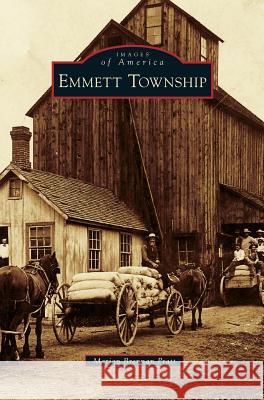Emmett Township » książka
Emmett Township
ISBN-13: 9781531659615 / Angielski / Twarda / 2012 / 130 str.
On February 19, 1850, the land that would be called Emmett Township was taken from the township of Clyde by an act of the Michigan Legislature. The town was not officially organized until years later when the name was changed to Emmett on April 21, 1883. The founding fathers named the area, the township and the village, after the person they considered to be a true Irish hero: Robert Emmett. The first land purchasers in Emmett were thought to have been Patrick and Bridget Keough Dunigan and their friend Michael Harrington. Much of the land was still inhabited by Native Americans, mostly from the Chippewa tribe. White settlers told stories about Indians coming into the cabins and sleeping by the fire on nights when the temperature was below zero. To pay for the night's lodging, rabbits and other small offerings might be found on the roof of the cabin in the morning. (Why the roof? To keep the meat away from wolves.)
On February 19, 1850, the land that would be called Emmett Township was taken from the township of Clyde by an act of the Michigan Legislature. The town was not officially organized until years later when the name was changed to Emmett on April 21, 1883. The founding fathers named the area, the township and the village, after the person they considered to be a true Irish hero: Robert Emmett. The first land purchasers in Emmett were thought to have been Patrick and Bridget Keough Dunigan and their friend Michael Harrington. Much of the land was still inhabited by Native Americans, mostly from the Chippewa tribe. White settlers told stories about Indians coming into the cabins and sleeping by the fire on nights when the temperature was below zero. To pay for the nights lodging, rabbits and other small offerings might be found on the roof of the cabin in the morning. (Why the roof? To keep the meat away from wolves.)











